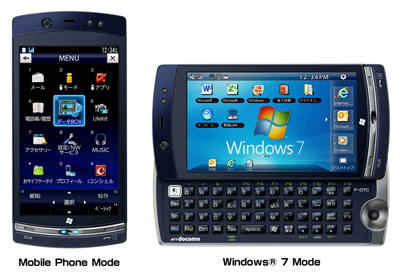Trusting Microsoft (for the First Time) To Unify an Ecosystem
One of the most-quoted statements from Andy Lees' keynote earlier this month at the Microsoft Worldwide Partner Conference came when he said a Microsoft tablet wouldn't be based on Windows Phone.
The president of Microsoft's Windows Phone division said, "Now, a lot of people have asked me, are we going to produce a phone that is a tablet? You know, are we going to use Windows Phone 7 to produce tablets? Well, that is in conflict with this strategy."
When he refers to "this strategy," Lees is talking about bringing devices together into a "unified ecosystem."
"At the core of the device itself, it's possible to be common across phones, PCs and TVs, and even other things, because the price drops dramatically. Then it will be a single ecosystem. We won't have an ecosystem for PCs, and an ecosystem for phones, one for tablets. They'll all come together," Lees said.
Those of us who have watched Microsoft for a long time are familiar with this argument from Redmond. Microsoft has talked up the benefits of a unified ecosystem ever since it started putting Windows on servers, phones and purpose-built tablets.
What's new is what this argument comes in service of. In the past, the argument was rather baldly in the service of Windows everywhere. Whether or not the traditional Windows interface met the need of the device (such as a phone), it met Microsoft's need to have its operating system on all devices to support Microsoft's own business goals.
Now, with the Windows "8" previews of early June, the re-imagined Windows looks like it will actually meet the needs of tablet users, the Windows Phone 7 and "Mango" interfaces arguably meet the needs of phone users, and the strongly-hinted-at-Windows 7-legacy option within Windows "8" would meet the needs of mouse-and-keyboard PC users even as the more tablet-like aspects make it intriguing for next-generation PC form factors.
Rather than a unified interface to meet Microsoft's own needs, it's a varied interface to meet actual users' needs. Suddenly, the idea that a common architecture would also support development across different platforms is more compelling, as well. For example, the fact that the version of Internet Explorer 9 on "Mango" will be the same as the one on the PC will make things easier on Web developers.
If I'd heard Lees' talking about unifying the ecosystem two months ago, I might have expected something like the Fujitsu Windows 7 F-07C device launched last week, about which Microsoft observer Ed Bott hilariously Tweeted, "Microsoft should pay Fujitsu not to release this."
Following the Windows 8 demos, however, I'm actually inclined to trust Microsoft to come out with compelling reasons for why a unified ecosystem could actually work for those of us who don't work for Microsoft. It's amazing what some real competition can do to focus the mind on real users' needs.

[Click on image for larger view.]
|
|
Despite this new Fujitsu device, Microsoft actually seems to be on the right track for unifying the ecosystem.
|
Related:
Posted by Scott Bekker on July 27, 2011